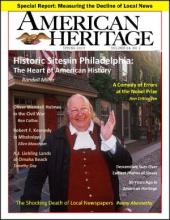Winter 2020
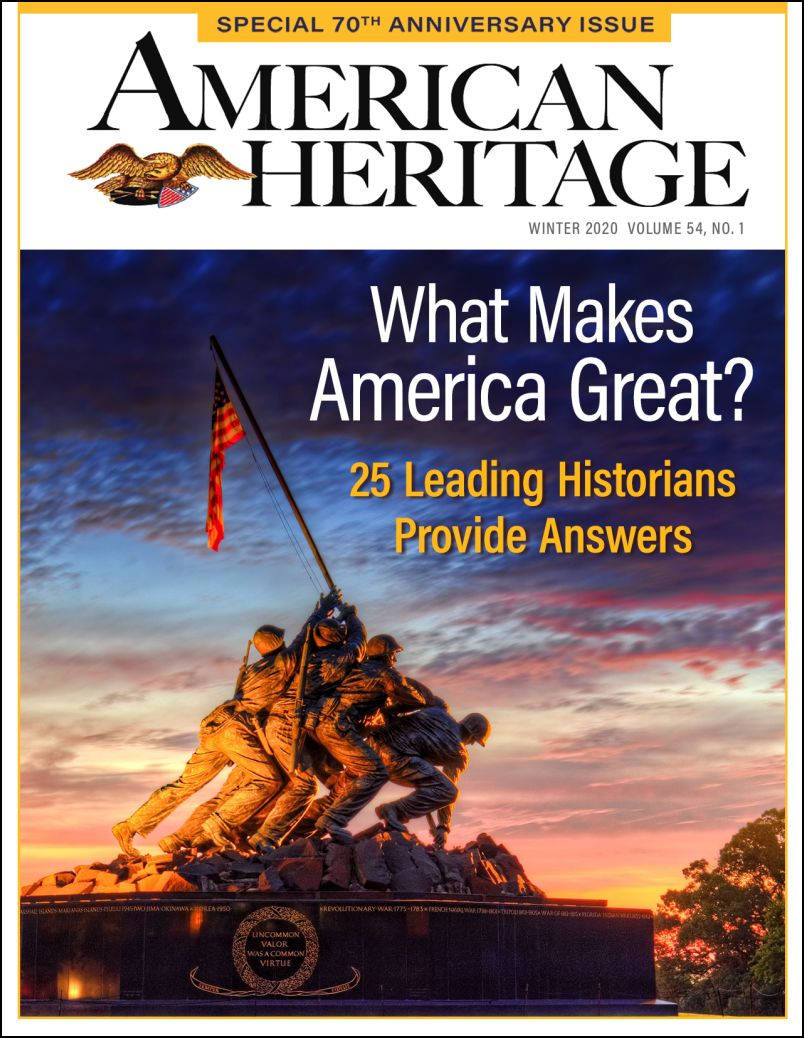
Departments
Features
The first votes of the fledgling Virginia Assembly in 1619 marked the inception of the most important political development in American history — the rise of democracy.
Thomas Jefferson’s Declaration of Independence announced a new epoch in world history, transforming a provincial tax revolt into a great struggle to liberate humanity from the tyrannies of the past.
The young nation was lucky to have the only candidate on earth who could do the job.
Members of the first Federal Congress had to create a new government almost from scratch.
The first ten amendments prevent majorities from exercising power at the expense of individuals. But they weren’t called a “bill of rights” until more than a century after ratification.
While much of the world still faces restrictions on religion, America's unique approach brought about both religious freedom and spiritual vibrancy.
A leading expert who helped a dozen nations write their constitutions explains how the Founders' ideas have had a lasting influence at home and abroad,
The struggles and triumphs of our Presidents have been central to shaping our nation, even though they operated under a Constitution that didn’t grant them unilateral power.
Our greatest Chief Justice defined the Constitution and ensured that the rule of law prevailed at a time of Presidential overreach and bitter political factionalism.
Jackson had deep flaws, but he left a lasting legacy, strengthening the executive office and striving to represent as many Americans as possible.
The untrained soldiers who fought at the Alamo believed freedom and the struggle for a better life were worth dying for.
In the blackest days of the Great Potato Famine in Ireland, Americans responded by organizing the first international humanitarian mission, sending food and provisions in the refitted warship USS Jamestown.
With five major exploring expeditions west of the Mississippi, John C. Frémont redefined the country — with the help of his wife’s promotional skills.
Her novel helped to end slavery and proved that Lincoln was right when he said, “Whoever can change public opinion can change the government.”
TR’s zeal for athletics helped lead to the emergence of modern sports in America including interscholastic competition, the NCAA, the World Series, and the First Olympics in the U.S.
He fought the alliance between corporations and political bosses, to take back government for farmers, workers, and consumers.
Jewish philanthropist Julius Rosenwald built almost 5,000 schools for African-Americans and helped educate hundreds of thousands of students.
Roosevelt felt the country needed “direct, vigorous action” to pull it out of the Depression.
Republican Sen. Margaret Chase Smith was the first in Congress to stand up to the bullying of Joe McCarthy.
She helped launch the environmental movement and pioneered the idea of the ecology of the human body.
The architect of American race relations in the twentieth century, he ended legal segregation in the United States and became the first African-American on the Supreme Court.
The first American woman in space inspired thousands of girls dreaming of a career in science.
Largely unknown to his cabinet, Ronald Reagan broke with previous U.S. policy and initiated a global campaign of economic and political warfare against the Soviets.
In many ways, the Constitution as we know it results from their landmark decisions.
The American method of high-risk, potentially high-reward investments has fueled innovation from New England whaling ventures to Silicon Valley start-ups such as Apple, Intel, Cisco, and Google.
Issue by year
2023


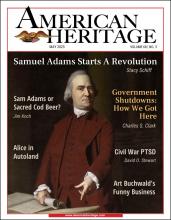



2022

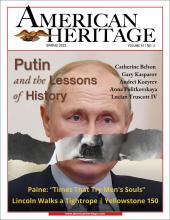




2021







2020




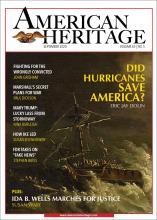



2019

